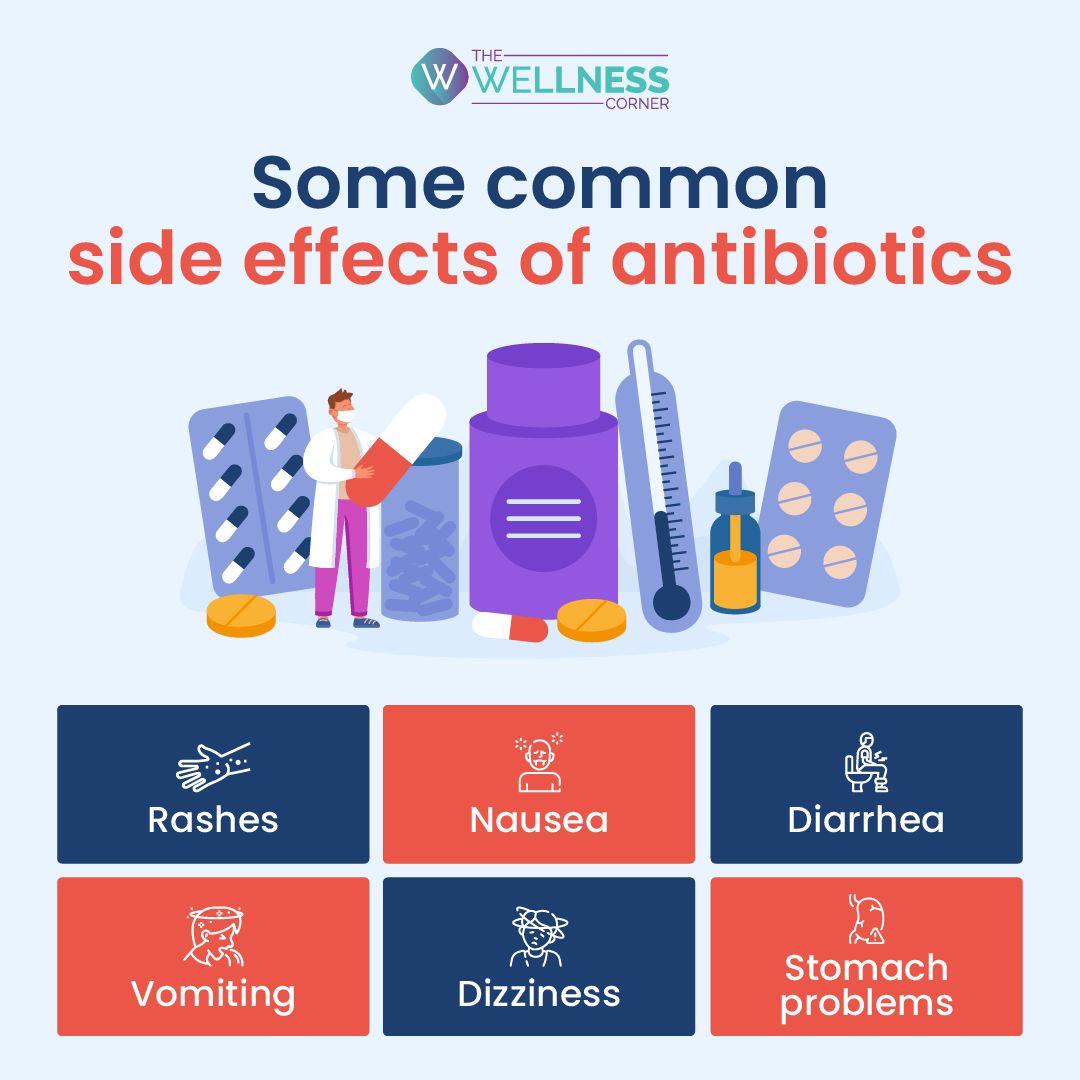Ways To Support Your Gut After A Round Of Antibiotics
- 18 months ago
We've all been there – a stubborn infection leads us to antibiotics, the superhero of medicine. While antibiotics swoop in to save the day by knocking out harmful bacteria, they can also inadvertently hamper our gut health.
Picture your gut as a busy city filled with trillions of tiny residents. These tiny inhabitants, fondly known as gut microbiota, play a pivotal role in your overall well-being. Antibiotics, while lifesaving, can disrupt this harmonious microbial metropolis. The gut, often referred as our "second brain," plays a vital role in our overall well-being. So, after a round of antibiotics, it's essential to give our gut some extra TLC to bounce back to its happy, balanced state.
Main question: Should you take antibiotics?
Antibiotics are vital for bacterial infections, but their misuse is a concern. About one in three prescriptions might be unnecessary, leading to 47 million excess prescriptions yearly. Respiratory issues like colds, bronchitis, and sinus infections often stem from viruses, not bacteria.
For bacterial infections like strep throat and pneumonia (confirmed by tests), antibiotics are essential. Factors like compromised immunity can warrant proactive antibiotic use. However, in most cases, antibiotics should be reserved for confirmed bacterial infections to prevent overuse and antibiotic resistance.
Avoid taking antibiotics without a proper prescription. Always consult a healthcare professional to ensure proper diagnosis, dosage, and treatment, preserving antibiotic effectiveness and your health.
Self-awareness is crucial, and if you find yourself lacking in this aspect, seek guidance from a medical professional at The Wellness Corner for a second opinion and make sure your doses are apt.
Also read: The dos and don'ts of antibiotics

How do antibiotics affect your gut?
Antibiotics have a significant impact on your gut health, and understanding their effects can help you learn how to restore and safeguard your gut after taking these medications.
When antibiotics are prescribed to treat infections like strep throat, skin infections, or pneumonia, they target the harmful bacteria causing the illness but also affect other bacteria in your gut. It includes beneficial and harmless bacteria that are essential for maintaining a balanced gut microbiome. Unfortunately, antibiotics are not selective in their action and can inadvertently eliminate these essential bacteria.
The problem often lies in the fact that antibiotics can disrupt key species of bacteria that serve as cornerstones of a diverse and thriving gut ecosystem. This disruption can lead to a reduction in the overall diversity of bacteria in your gut, which is crucial for various aspects of health.
Also read: Choose nature's own antibiotics!!

Ways To Support Your Gut
1. Probiotics
Probiotic supplements contain helpful microorganisms that support the restoration of gut health by replenishing the beneficial bacteria that may have been reduced due to the use of antibiotics.
2. Fiber-Rich Diet
A diet high in fiber supports gut health by promoting regular bowel movements and providing sustenance for your gut bacteria. Fruits, vegetables, legumes, and whole grains are excellent sources of fiber. Aim to gradually increase your fiber intake to avoid overwhelming your system, especially after a course of antibiotics.
3. Fermented Foods
Incorporate fermented foods into your diet. These naturally contain probiotics and can help replenish your gut bacteria. Examples include yogurt (with live cultures), pickles, chutneys, kimchi, and kombucha.
4. Avoid Sugary and Processed Foods
High-sugar and processed foods can negatively impact your gut microbiota, promoting the growth of harmful bacteria. Limit your consumption of sugary snacks, beverages, and heavily processed foods. Instead, focus on whole, nutrient-dense options.
5. Prebiotics
Prebiotics are non-digestible fibers that feed the beneficial bacteria in your gut, helping them flourish. Foods rich in prebiotics include garlic, onions, leeks, asparagus, bananas, oats, and whole grains like barley and wheat. Including these in your meals can encourage the growth of healthy gut bacteria.
Conclusion
Recovering from a round of antibiotics requires intentional efforts to restore and maintain gut health. By incorporating these seven strategies—embracing probiotics and prebiotics, prioritizing fiber and hydration, practicing mindful eating, reducing sugar and processed foods, and managing stress—you can support the revitalization of your gut microbiota.
Remember, nurturing your gut is a holistic endeavor that promotes healthy digestion and contributes to overall vitality and immunity. Your gut will thank you for the care and attention you invest in its well-being.









